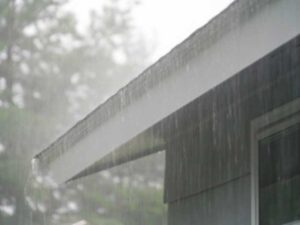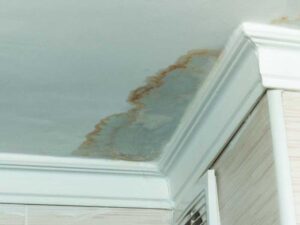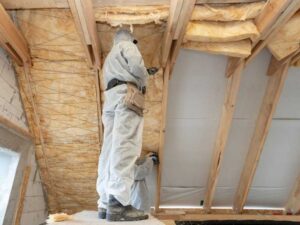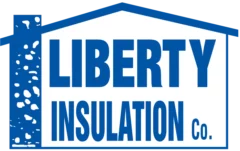Pennsylvania’s diverse climate and abundant rainfall pose unique challenges for homeowners wanting to protect their home from the elements. Rain and water damage can wreak havoc on your home, making it crucial to prioritize rain-resistant roof solutions and measures for your home. Read on to learn how to rainproof your home’s roof with these tips and strategies that explore how effective insulation acts as a barrier against water to prevent moisture-related issues, the importance of roof and gutter maintenance, and ways to save money through Pennsylvania incentives.
Understanding Pennsylvania’s Rainfall Patterns

Assessing Roof Vulnerabilities
In Pennsylvania homes the roof, gutters, and downspouts are especially prone to leaks and water damage, requiring careful attention and regular maintenance. Over time, weather exposure can compromise your roof: deteriorating shingles, loosening flashings, and deteriorating the seals around vents and chimneys, leading to water leaks. Your gutters and downspouts play a crucial role in directing water away from your house, but if they become clogged or damaged, they can cause water to pool near your foundation, leading to basement leaks or foundation issues. Regular roof inspections identify potential problem areas before they escalate into significant issues, allowing you to detect signs of wear and tear, identify leaks, and address them promptly.
Protecting Your Roof from Water Damage

Safeguarding Your Attic with Insulation
Insulation plays an important part in safeguarding your attic from water damage and protecting your home. Attic insulation acts as a barrier against moisture, reducing the risk of condensation and water infiltration. There are several types of attic insulation materials available, including fiberglass insulation, cellulose insulation, and spray foam insulation.
Fiberglass insulation is popular for its affordability and effectiveness in insulating attics. Cellulose insulation, made from recycled paper products, offers excellent thermal performance and can be blown into hard-to-reach areas. Spray foam insulation provides superior insulating and air sealing power, preventing moisture from entering your attic. While it may be tempting to install your own attic insulation, it’s much wiser to hire a professional. A professional can properly assess your insulation needs and assure proper coverage and sealing, allowing you to rest assured the job will be done correctly and efficiently.
Learning About Pennsylvania Government Programs and Tax Benefits for Insulation
Pennsylvania offers a variety of government programs and tax benefits to incentivize homeowners to invest in insulation upgrades. Combined with both federal and state incentives, there’s no better time to get rewarded for safeguarding your home while improving its energy efficiency. Some of the available incentives include:
- The Pennsylvania Weatherization Assistance Program (WAP) – Designed to assist low-income households in improving energy efficiency through insulation and other weatherization measures.
- The Pennsylvania Residential Energy Tax Credit – Allows for a tax credit of up to $500 for eligible energy efficiency improvements, including insulation.
- The Federal Inflation Reduction Act (IRA) – Signed into law in August of 2022, it provides a tax credit for energy-efficiency improvements of residential homes.
Visit Pennsylvania’s Department of Environmental Protection for a complete list of the available savings opportunities you may qualify for. By maximizing savings through government programs and tax benefits, you are not only improving and protecting your home, but also reducing your overall expenses.
Hiring Professional Contractors for Water Damage Prevention

- They can conduct a proper assessment of your insulation needs, considering factors such as climate, building structure, and energy efficiency goals.
- They have access to specialized equipment and tools that enable them to install insulation accurately and efficiently.
- They are well-versed in building codes and regulations, ensuring that all work is compliant and meets safety standards.
- They provide insulation warranties and insurance coverage that a DIY project wouldn’t offer.
With their experience and skill, professional contractors deliver high-quality results, minimizing the risk of water damage and maximizing the longevity and efficiency of your insulation system.
Exploring Other Measures to Protect Your Home from Water Damage
Beyond insulation and roof protection, there are other measures you can take to protect your Pennsylvania home from water damage. Properly maintaining your gutters and downspouts and keeping them unclogged is essential for directing rainwater away from your house in the warmer months and preventing ice dams in the winter. Ensuring proper grading and drainage around your foundation, such as sloping the ground away from your house and installing an effective drainage system to redirect water, are important ways to prevent water accumulation. Installing a sump pump to remove water from your basement and a backup system for power outages will provide an extra layer of protection against basement flooding.
We’re Here to Meet Your Insulating Needs
With our local climate, it’s important to utilize the tips and strategies we discussed to protect your roof and home from water damage. Be sure to contact the appropriate roofing professionals to take care of your roof and gutters and perform any needed inspections and maintenance. Discovering water damage to your roof or attic is not uncommon but it is essential to repair the problem quickly to prevent further damage. Once your leaks are fixed, our expert team at Liberty Insulation is here to remove your water damaged attic insulation and replace it with fresh, quality insulation that will help keep moisture out and conditioned air inside your home for many years to come. Contact us today to learn more about the benefits of attic insulation for your home and receive your free estimate.

